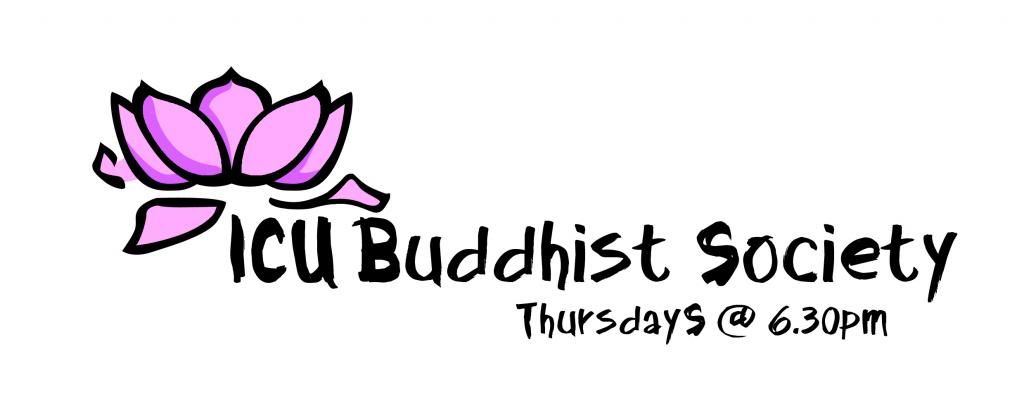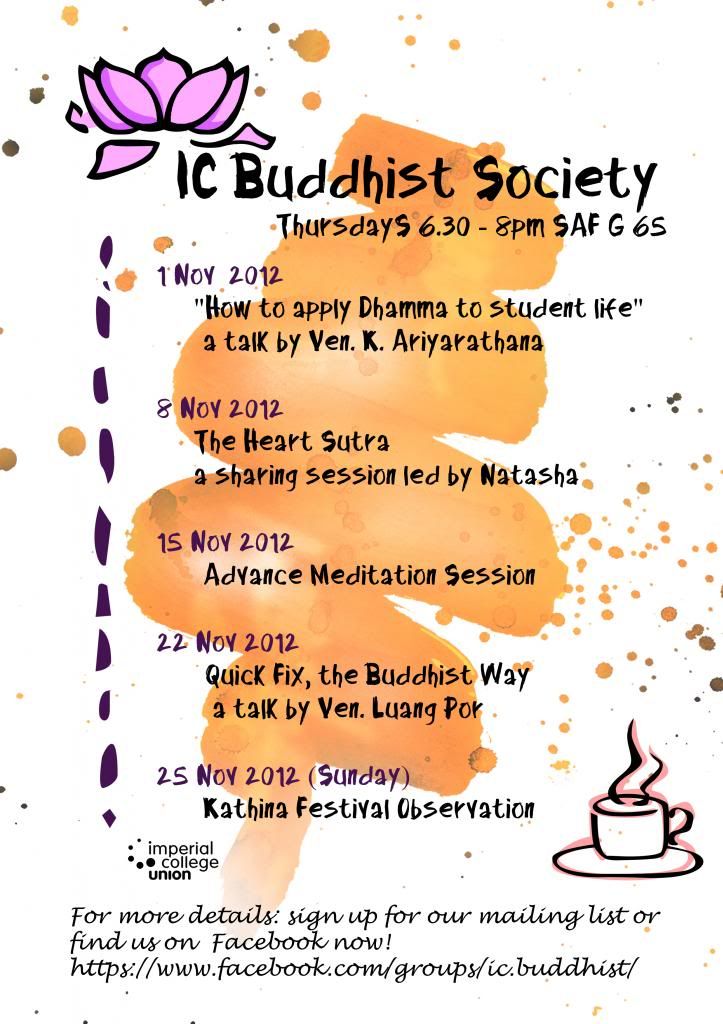Tech Savvy!
*Advert*
Feeling frustrated or unable to cope with life after college has started? Or is there a missing drive in your life?
For those who missed last Thurday's session, do come this Thursday as we have invited Bhante (or Venerable) Ariyarathana from London Buddhist Vihara to give a talk on Applying Dhamma to student life, or working life. If you have any questions not pertaining to this theme, it is perfectly fine. Bhante (Ven.) Ariyarathana will be more than willing to answer any questions under the sun!
The key teachings in the Dhamma will be presented in a series of Buddhist Fact of the Week (BFW) starting next week. Stay tuned!
*end of advertisement*
The previous Thursday, instead of focus on the Dhamma, we experienced the help of technology to better practice Buddhism. Here are two MOBILE APPLICATIONS we love to share with all of you out there!
1. Stumble Upon
http://www.stumbleupon.com/
This application links and share many pages and information on a large variety of key themes. They range from English literature to Ballet, animation, and of course Buddhism!
One good article I found on the app is the one as follows:
http://www.raptitude.com/2010/10/9-mind-bending-epiphanies-that-turned-my-world-upside-down/#comments
Every time you click on the icon "Buddhism" a different article will appear. Do remember to bookmark the article if you STUMBLEUPON a good one and want to return to it in the future,
2. Smiling Mind
http://smilingmind.com.au/
This mediation application has 10 recordings to facilitate your meditation process. Starting with Exploring Breath, they guide you step by step for 6 minutes. It gets more effective if you can proceed further to meditate yourself after the 6 minutes guide. At the end of the ten sessions, you'll have meditated through exploring sounds, tastes, body, movements, emotions, thoughts and more. The app also have a meter where you can monitor your inner energy or emotions before and after each meditation session.
Comments by our members: Functional and comprehensive guide(with an Australian accent :) )! Nice little calming bell at the end of the session!
Do give it a try!
That's all folks! Stay tuned!
Feeling frustrated or unable to cope with life after college has started? Or is there a missing drive in your life?
For those who missed last Thurday's session, do come this Thursday as we have invited Bhante (or Venerable) Ariyarathana from London Buddhist Vihara to give a talk on Applying Dhamma to student life, or working life. If you have any questions not pertaining to this theme, it is perfectly fine. Bhante (Ven.) Ariyarathana will be more than willing to answer any questions under the sun!
The key teachings in the Dhamma will be presented in a series of Buddhist Fact of the Week (BFW) starting next week. Stay tuned!
*end of advertisement*
The previous Thursday, instead of focus on the Dhamma, we experienced the help of technology to better practice Buddhism. Here are two MOBILE APPLICATIONS we love to share with all of you out there!
1. Stumble Upon
http://www.stumbleupon.com/
This application links and share many pages and information on a large variety of key themes. They range from English literature to Ballet, animation, and of course Buddhism!
One good article I found on the app is the one as follows:
http://www.raptitude.com/2010/10/9-mind-bending-epiphanies-that-turned-my-world-upside-down/#comments
Every time you click on the icon "Buddhism" a different article will appear. Do remember to bookmark the article if you STUMBLEUPON a good one and want to return to it in the future,
2. Smiling Mind
http://smilingmind.com.au/
This mediation application has 10 recordings to facilitate your meditation process. Starting with Exploring Breath, they guide you step by step for 6 minutes. It gets more effective if you can proceed further to meditate yourself after the 6 minutes guide. At the end of the ten sessions, you'll have meditated through exploring sounds, tastes, body, movements, emotions, thoughts and more. The app also have a meter where you can monitor your inner energy or emotions before and after each meditation session.
Comments by our members: Functional and comprehensive guide(with an Australian accent :) )! Nice little calming bell at the end of the session!
Do give it a try!
That's all folks! Stay tuned!



